‘There comes a time when humanity is called to shift to a new level of consciousness . . . that time is now.’ Wangari Maathai
The world is changing in ways that profoundly affect feminist movements and the role of philanthropy in supporting social justice causes. With the global rise of authoritarian regimes, restrictions on civic space and foreign funding are reshaping what organizing looks like in many countries. The climate crisis is deepening structural inequalities and, along with conflict, driving forced migration. Anti-gender, anti-rights, and xenophobic narratives are circulating in ways we are yet to fully understand, with disinformation proliferating in online spaces. International human rights frameworks are under threat. Power is shifting in the philanthropic ecosystem, with new actors and mechanisms changing the terrain. Within these trends, there are challenges and opportunities for those seeking to build a more just, equitable and harmonious world.
In this context, feminists are often required to respond to the immediate needs of communities and movements, with little time for imagining a different world than the one we currently occupy. However, imagining a different reality and future is key to building hope and managing despair. But how do we create the space that allows for envisioning and dreaming? What factors enable us to dream of a different future while grounded in the present? And what elements – safety, security, trust, and sense of community,– are needed for us to suspend disbelief, trust each other, and collectively create an abundant and just world?
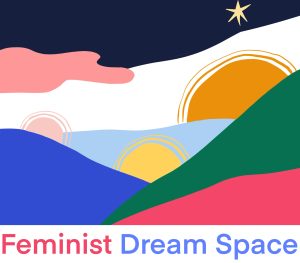 Enter the Feminist Dream Space – a space for collective reflection, learning, and strategizing about building and amplifying a positive vision for the feminist futures we need and deserve, grounded in the experiences and realities of southern-based feminist leaders. We recognize the key roles that philanthropy (in its many incarnations) can play in building a different world and we seek to strengthen the feminist architecture and funding ecosystem: engage new and emerging feminist thinkers and leaders and learn across silos and sectors. Feminist Dream Space envisions feminist politics of resource (re)distribution as a creative practice. We are deeply convinced that if we want to build a different future, we must imagine it and then begin embodying it, not just struggle against other people’s visions and agendas that we disagree with.
Enter the Feminist Dream Space – a space for collective reflection, learning, and strategizing about building and amplifying a positive vision for the feminist futures we need and deserve, grounded in the experiences and realities of southern-based feminist leaders. We recognize the key roles that philanthropy (in its many incarnations) can play in building a different world and we seek to strengthen the feminist architecture and funding ecosystem: engage new and emerging feminist thinkers and leaders and learn across silos and sectors. Feminist Dream Space envisions feminist politics of resource (re)distribution as a creative practice. We are deeply convinced that if we want to build a different future, we must imagine it and then begin embodying it, not just struggle against other people’s visions and agendas that we disagree with.
The theme of the 2024 African Philanthropy Conference held in Victoria Falls, Zimbabwe focused on ‘new frontiers’ and was an ideal opportunity for members of the Feminist Dream Space to engage conference participants in a collective envisioning and dreaming exercise. When we take time to build community, pause and reflect, we can dream of a future reality and identify the aspects of this future vision that are already present and emerging in the present.
Our FDS session – Envisioning and Creating African Feminist Philanthropic Alternatives – was designed to encourage dialogue and allow for collective conversations and dreaming. The FDS moderator, Theo Sowa, began by giving an overview of the origins of our work that began as a seed of a conversation in 2022 and has iterated and evolved into a feminist dream space led by global south and east feminist funders and movement leaders. She spoke of the importance of grounding ourselves to dream and took participants through a grounding meditation and visioning exercise in starting the session. She then passed the baton to the various panelists who gave examples of their visions for a future philanthropic ecosystem.
Leila Hessini reiterated the importance of recognizing where elements of that dream are emerging in the present, and identifying what seeds we need to plant now for that future world to exist. For Feminist Dream Space, the feminist future that we envision exists at the intersection of feminist politics, narratives, funding and architecture. To build our feminist future, we must define the core values of our feminist future, take control of our own narratives, knowledge and analysis, reclaim the purpose of philanthropy, and archive our past and present alternatives for the future. This includes centering horizontal, solidarity-focused, non-hierarchical models of giving as the philanthropic norm. Feminist funds work hard to embody aspects of this feminist future in that they uphold feminist funding practices and principles in the work they do. For instance, The Doria Feminist Fund, which works across North Africa and the Middle East, is supporting activists across the region to build feminist narratives, uplift the creative ideas, solutions, and innovations of women across the region and create a hub to consolidate and share knowledge and information regionally and globally. Two pan-African initiatives – Harambe Ubuntu pan-African and Feminist philanthropies and the Adɔyɛ (Women in African Philanthropy) initiative are unearthing and documenting women’s narratives and experiences as a way to recenter a range of local and regional philanthropic approaches and traditions, reimagining the ecosystem needed for them to flourish and creating sustainable, equitable, locally-owned and driven resource infrastructures.
Nicolette Naylor underscored the importance of always beginning with the true meaning of philanthropy – love of humanity. Love as a political act, and love – not money – as the antidote to human pain and suffering. Thus we need to see philanthropy as a political act around love of humanity – as a collective action grounded in love, growth and respect. We need to work to integrate connection, politics and love in our funding practices. Yet she highlighted so many ways in which we still put donor agencies at the centre of the conversation, despite different rhetorics. Nicolette spoke about a world where funders would leave their egos at the door, genuinely listen to communities and end extractive practices. At the core, relationships between ‘funders’ and ‘grantees’ would be different and grounded in mutuality, joint accountability, and the understanding that no one institution has all the answers. Nicolette encouraged us to focus our philanthrophic dream on love, solidarity and connection.
Vivienne Mentor-Lalu shared a key Power Mapping tool created by Just Associates that supports activists to map the different forms of power in their communities – power over, with, to and within. Power mapping is simply a way to identify locations of power that can be used to liberate in a community while also fighting negative power. In this sense, dreaming, reclaiming narratives, analysing and transforming uses of power can be radical acts of resistance.
The thirty participants attending the session broke out into five smaller groups (including one in French) to continue the reflections and sharing of visions of worlds where justice and gender justice prevail for all. The seeds they came up with included worlds where all forms of violence, discrimination and oppression faced by women and gender non-conforming individuals had been eliminated; worlds that ensured all peoples reached their full potential; worlds that upheld relationships with the natural world grounded in understandings of the interconnectedness of all life forms. Our dream worlds are spaces where all individuals, regardless of gender, can live fulfilling, equitable, and liberated lives. Feminist dream spaces extend beyond local or national boundaries, recognizing the importance of global solidarity, connection, and aligned politics. We recognized that aspects of this feminist future can be found in the present – in communities grounded in care, solidarity and love, mutual aid, horizontal giving, and local and regional philanthropic actions and practices. And we understand that we must continue to create opportunities to identify where we are seeing shifts in meaning, framing, and understandings of philanthropy, reflect on what narratives we are prioritizing and why, and ensure that intersectional feminist ethics are a set of organizing principles and values that truly operate within our movements and the funding ecosystems.
While envisioning and dreaming of different futures is important, transforming these dreams into reality is critical. We at Feminist Dream Space are committed to building space for dreaming, experimentation, rehearsing and embodying the worlds that we envision and deserve. We know that elements of these worlds are around us, some are emerging, and others have yet to be imagined. As so eloquently stated by Arundhati Roy, we know that Another world is not only possible, she is on her way. On a quiet day, [we] can hear her breathing.
Leila Hessini is a joint founder of Feminist Dream Space and an Algerian-American and pan-African feminist Strategist and Advisor who works with a range of feminist organizations, funds and movements advancing rights, equity, and justice.
Nicolette Naylor is a global strategic leader and experienced executive with over two decades of experience leading strategies at the intersection of justice and philanthropy.
Theo Sowa CBE is a joint founder of Feminist Dream Space nd a Ghanaian-born independent adviser working on a wide range of international issues with a focus on social development issues and has spoken publicly on a number of socio-political issues.

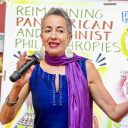

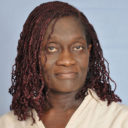

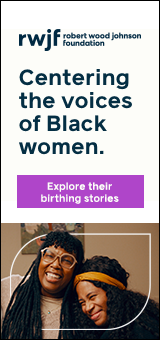

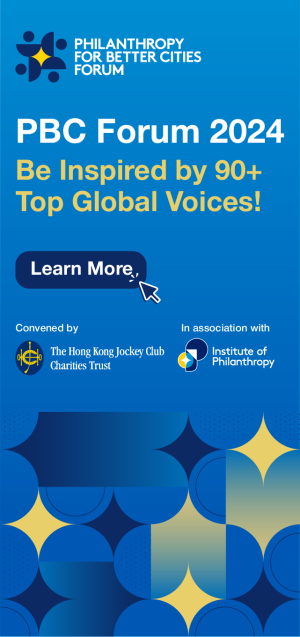
Comments (0)